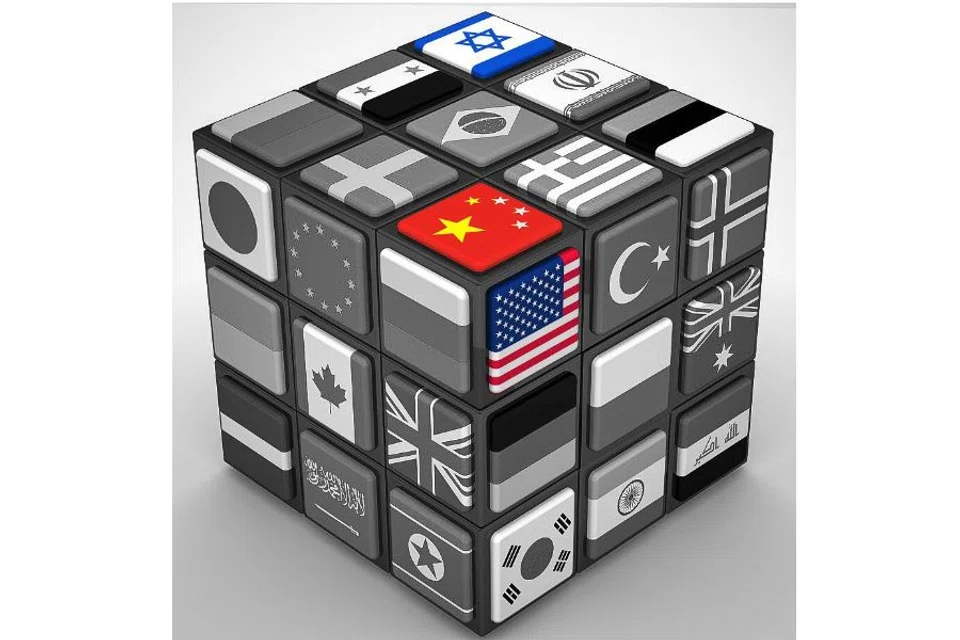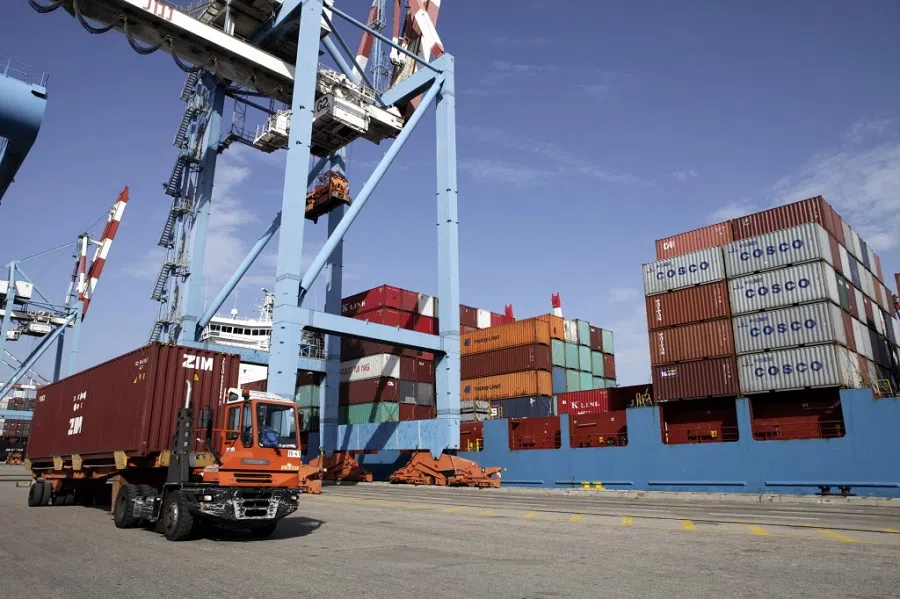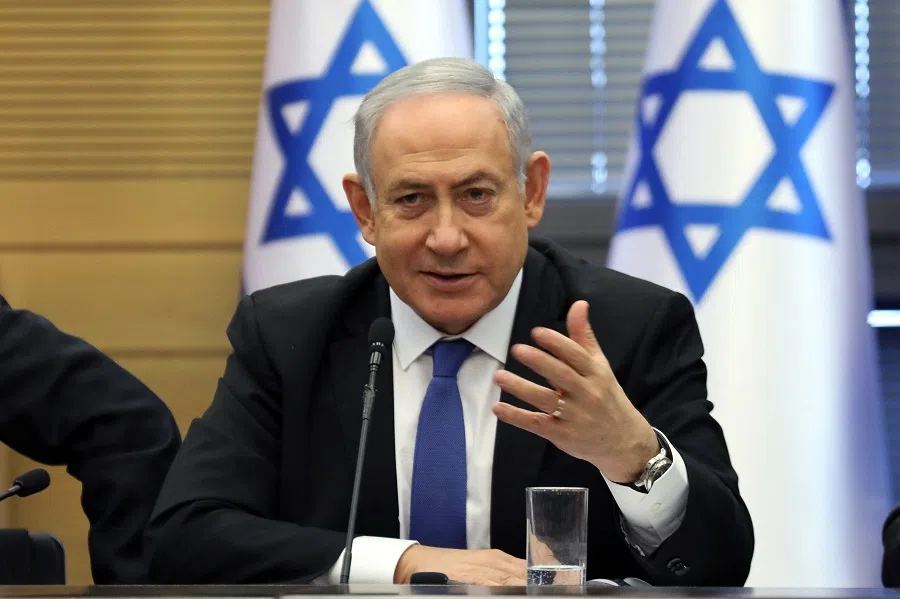Israel: Caught between a rock and a hard place with China and the US
China and Israel share a special relationship that goes back in history and is grounded in modern economic and social needs, but the US has both explicit and implicit concerns about growing China-Israel relations. Political scientist Zhu Zhiqun illuminates how Israel walks the tightrope of advancing relations with both China and the US amidst intense rivalry between the two major powers.

As rivalry between the US and China intensifies, third countries are increasingly facing difficulties in managing relations with both powers. For US allies such as Israel, the US provides indispensable security protection; but in economic, social and other aspects, China offers many enticing and beneficial opportunities. No one wants to be forced to choose sides; it requires great diplomatic and political skills for these countries to maintain good relations with China and the US simultaneously.
China and Israel have a kind of special relationship in contemporary times largely due to China's sheltering of the European Jews during World War II. Around 25,000 European Jews who fled the Holocaust settled in Shanghai. Among the Jewish refugees in Shanghai are such notable people as former US Treasury Secretary Michael Blumenthal, renowned businessman Shaul Eisenberg, composer Otto Joachim, and Dr Jacob Rosenfeld who later joined the Chinese Communist forces as a physician during the war against the Japanese.

From 1938 to 1940, Ho Feng Shan, Nationalist Chinese government's consul general in Vienna, issued thousands of visas to the Jews who were desperately trying to flee Nazi-occupied Austria. Ho, who died in 1996, was hailed as the "Chinese Schindler". In 2000 Israel bestowed him posthumously the title of "Righteous Among the Nations", one of its highest civil honours.
Shaul Eisenberg (1921-1997), one of the Jews who fled to Shanghai, later built an impressive global business empire including Israel Corporation and Beit Asia. He also had controlling interests in the Israel Chemicals conglomerate and in Zim Navigation, Israel's biggest shipping company. Known as "the king of China", Eisenberg was believed to be the first person to connect commercial businesses between Israel and China.
Israel was the first country in the Middle East and one of the first non-communist countries to recognise the People's Republic of China. Chinese and Israeli diplomats met in Moscow in June 1950 to explore diplomatic relations. Chinese participation in the Korean War and US pressure hindered diplomatic relations between China and Israel. Israel's exclusion from the Bandung conference in 1955 and China's support of Arab nations further alienated the two countries. There were almost no official contacts between 1955 and 1978. Trade between China and Israel started in the 1970s and representative offices were established in each other's capital in 1990. Bilateral relations have boomed since the establishment of diplomatic relations in 1992.

What Are China's interests in Israel?
China's prime interests in Israel are advanced technologies and Israel's location as a potential hub for the Belt and Road Initiative. China's recent attention to Israel is also part of its efforts to improve "soft power" abroad and to be more involved in Middle Eastern affairs.
As a developing nation, China faces many domestic problems - pollution, desertification, an ageing population and so on. Israel fits the bill as a global powerhouse in biotech, water tech, agrotech, energy, health care, among others.
Chinese firms have made major inroads in Israel, including the 2011 purchase of 60% controlling interest in Makhteshim-Agan, one of the world's largest pesticide production and distribution companies, by ChemChina for $2.4 billion; and the 2014 takeover of Tnuva, Israel's largest producer of dairy products, by China's Bright Food for $2.5 billion with a controlling stake.
As Chinese companies expand their presence in Western economies, they need to accumulate experience in operating in developed economies. The experience gained from investing in Israel and managing businesses in Israel will better prepare them for competition with the US and Europe.
What Are Israel's interests in China?
Israel's interest in China is primarily economic and strategic. Economic cooperation with China brings tangible benefits to Israel such as fine consumer products, local jobs generated by Chinese investments, growing tourists, upgraded infrastructure, and penetration into the Chinese market for Israeli businesses.
Prime Minister Benjamin Netanyahu made developing Israel-China relations "a strategic goal". During his March 2017 visit to China, Netanyahu met with the heads of some of China's largest businesses, including Alibaba, Baidu, Lenovo, Wahaha, and Wanda. "A large portion of them are investing in Israel and a large portion of them will invest in Israel. This means jobs, the development of businesses and a link to the major Chinese markets," said Netanyahu after the meeting.
Strategically, developing strong relations with China helps Israel to diversify its political and economic partnerships. Israel will seek China's neutrality (short of support) in the Middle Eastern conflicts, given China's longstanding solidarity with Palestine, Iran and other rivals and enemies of Israel.
Israel and China signed a 10-year multiple entry visa agreement in 2016. With the new visa policy, China has quickly become Israel's fastest-growing source of tourists. The two sides hope to double the number of Chinese tourists in a few years and the Israeli Tourism Bureau is training Mandarin-speaking tour guides in anticipation of this boom.
Due to its security reliance on the US, it may not be feasible for Israel to develop a completely independent China policy. However, Israel has its own interests that do not always align with those of the US. There are indications that Israel has not always followed America's China approach.
The US' concerns
The US has both explicit and implicit concerns about growing China-Israel relations. Explicitly, the US is concerned about the potential transfer of defence-related technologies from Israel to China given deep technological cooperation between them. In terms of security, it is particularly concerned about the new Haifa port that a Chinese company is building. Implicitly, the US has become concerned about growing Chinese influence in Israel and the Middle East in general. It is also worried about cracks in the US-Israel alliance and fears that Israel may develop an independent China policy.
In 2015, the Shanghai International Port Group (SIPG) entered into an agreement, with commitments of $2 billion, to build and operate a new port in Haifa for the next 25 years. The port is set to be inaugurated in 2021. Haifa is a frequent port of call for the US Sixth Fleet and serves as the base for Israel's strategic submarines. This new terminal is only about one kilometre away from the docks where the US warships anchor when they visit. This has become an issue against the backdrop of the US-China trade war. Some suggest that it is rapidly becoming a problem as big as the Phalcon and Harpy incidents in the early 2000s. Under US pressure, Israel cancelled attempted sales of the Phalcon airborne early warning and control radar system to China in 2000 and planned upgrades of the Harpy unmanned aerial drone system for China in 2005. China-Israel relations dipped to a low point.
During their visits to Israel in January and March 2019 respectively, both John Bolton, then National Security Adviser to President Trump, and Secretary of State Mike Pompeo warned Israel of security risks from Chinese investments in sensitive sectors and locations, and threatened to reduce security cooperation between the US and Israel.
However, some Israeli officials are countering that the US concerns are overblown. "The security warnings about the Chinese are a joke, completely mad", said one senior government source. "If they want to gather intelligence, they can simply rent an apartment in Haifa instead of investing in ownership of a port."

Signs of an incipient independent China Policy?
Due to its security reliance on the US, it may not be feasible for Israel to develop a completely independent China policy. However, Israel has its own interests that do not always align with those of the US. There are indications that Israel has not always followed America's China approach.
For example, Israel is one of the 57 founding members of the China-led Asian Infrastructure Investment Bank, defying pressures from the US. It has also actively cooperated with China on the Belt and Road Initiative. Prime Minister Netanyahu asserted that Israel would be "a perfect junior partner" to China's economy and welcomed Chinese investment in Israel.
With repeated stern warnings and urgings from Washington, Israel finally decided to form a government panel in October 2019 to examine foreign investments, but without specifically mentioning China. Israel has not joined the US in the current trade and technological wars with China. Both Huawei and ZTE continue to operate in Israel. All educational and scientific exchanges, including joint labs, continue to grow, in contrast to what the US is doing to tighten control on possible theft of US technologies by Chinese scientists and students through such exchanges.
Before Prime Minister Netanyahu's state visit to China in 2013, a US court ordered Israel to send an official to testify in a lawsuit against the Bank of China for allegedly aiding in money laundering activities for terrorist groups. Though the victim of this particular terror attack was a Jewish-American and the Israeli government was pressured by pro-Israel members of Congress in Washington, Netanyahu decided to prevent the official from testifying.

Prospects
Close alliance between Israel and the US and China's solidarity with the Palestinian cause and friendly relations with Iran pose limitations to a stronger China-Israel partnership. China has historically supported the Palestinian's position as reflected by President Xi Jinping's address to the Arab League in 2016, when he called for the establishment of a Palestinian state with East Jerusalem as its capital.
A RAND report in 2019 suggested that Israel-China relations, which are strengthening, would lead to a conflict of interests between Israel and the US. A key US ally, Israel is unlikely to jeopardise security ties with the US in order to expand relations with China. The fact is not all US and Israeli interests converge. For its own national interests, Israel will not always follow the US in international affairs and may develop a more nuanced and somewhat independent policy towards China. On the other hand, the US, China, and Israel have common interests in maintaining the stability of the Middle East, containing terrorism, and ensuring the free flow of energy from the region. China does not seem to be seeking to replace the US in the region.
US-China rivalry is a reality that no country can avoid. However, even these two powers cooperate whenever they can. It is unwise for third parties to pick sides. Perhaps the US, China, and other countries should bear this in mind: Challenges are grave as global power shift is taking place, but one should not let go opportunities for bilateral and multilateral cooperation that benefit all.





